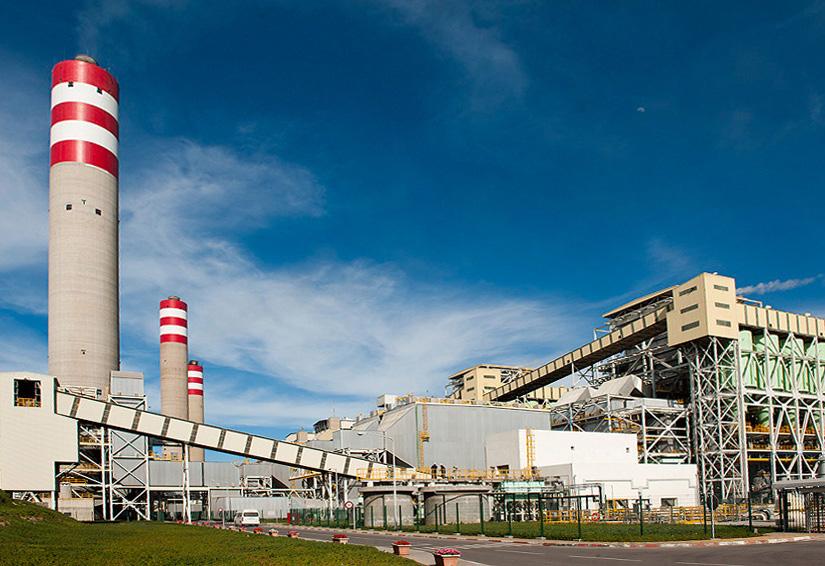




Mohamed Berrechid on Strategic Sourcing
Leadership at TAQA Morocco
In this Executive Insight, Mohamed Berrechid, Procurement & Contracts Director at TAQA Morocco, shares his strategic perspective on procurement’s evolving role in the energy sector. From leading digital transformation and driving sustainability, to managing global supply chain risks and supporting Morocco’s national energy goals, Mohamed offers practical, forward thinking advice shaped by years of industry experience. His approach is rooted in efficiency, transparency, and resilience, with a clear focus on aligning procurement with broader business and environmental objectives.
Can you share your career path and what led you to your current role as Procurement & Contracts Director at TAQA Morocco? How have your previous experiences shaped your approach to procurement and contracts management?
As the Procurement & Contracts Director at TAQA Morocco, I’m privileged to lead strategic sourcing and contract management for a company that plays a pivotal role in Morocco’s energy sector, contributing to nearly 35 percent of the national electricity demand. My career has been shaped by a passion for optimising supply chains and fostering sustainable partnerships, which has culminated in this exciting and impactful role.
My journey began at Prudent Consultants, where I worked as a consultant in the energy sector. There, I developed a strong foundation in supplier relationship management and contract negotiation. Early in my career at TAQA Morocco, I worked in business development and was an integral part of the team that negotiated major EPC contracts, including closing the Africa Power Deal of the Year in 2015. That experience taught me the importance of aligning procurement strategies with broader organisational goals, a principle I continue to uphold today.
Joining TAQA Morocco felt like a natural progression, given its commitment to sustainable energy and operational excellence. I was drawn to the company’s leadership in private power generation and its strategic focus on low carbon initiatives, which aligns with my own passion for driving impactful procurement strategies. My previous roles equipped me to navigate the complexities of the energy sector, from managing high stakes contracts to fostering supplier relationships that support long term sustainability goals.
My approach to procurement and contracts management is rooted in three pillars: efficiency, transparency, and strategic alignment. I leverage digital tools to streamline processes, as demonstrated by TAQA Morocco’s shift from manual to digital RFx communications, which reduced administrative time by over 200 percent. I also prioritise building strong supplier partnerships to ensure reliability and compliance, drawing from my experience negotiating contracts in high pressure environments. Finally, I ensure our procurement strategies align with TAQA Morocco’s broader objectives, such as supporting the country’s energy transition through sustainable sourcing practices. Looking ahead, I am excited to continue driving TAQA Morocco’s strategic procurement excellence, contributing to its mission of delivering reliable, competitive, and decarbonised energy. My diverse experiences have prepared me to navigate the evolving energy landscape, ensuring our supply chain supports both operational success and environmental stewardship

Procurement is vital in ensuring the reliability of energy production. How does your team support TAQA Morocco’s commitment to delivering 35 percent of the nation’s electricity from 18 percent of the installed capacity?
Our team manages complex supply chains, ensuring the reliable procurement of strategic commodities, primarily fuel and coal, at the best possible cost and in the most efficient and dependable manner. This commitment to operational excellence and attention to detail enables uninterrupted supply to the Jorf Lasfar power complex, allowing our operations teams to keep the lights on 24 hours a day, seven days a week.
We work closely with our colleagues in port operations and at the power plant to adapt our supply approach to operational realities, particularly when it comes to managing environmental requirements. We ensure that the commodities we procure support compliance with emissions regulations while delivering optimal energy output.
Sustainability is increasingly important in the energy sector. How is TAQA Morocco integrating sustainable practices into its procurement and supply chain operation?
Sustainability is indeed a major priority for us, and we place great emphasis on embedding it across our operations. TAQA Morocco aims to reduce its carbon intensity by 25 percent by 2030, an ambitious target that reflects the company’s forward thinking and innovative approach.
We work closely with our colleagues in port operations and at the power plant to adapt our supply approach to operational realities
At our existing facilities in Jorf Lasfar, the company has invested tens of millions of dollars in environmental equipment and fully complies with the World Bank’s strictest standards on emissions. TAQA Morocco is also undertaking a large scale renewable energy development program, including the installation of both wind and solar power, with five solar sites under the Noor PV II initiative.
From a procurement perspective, we integrate sustainability directly into our sourcing process. Our RFP documents include technical specifications related to sustainability, and during supplier vetting we ensure that environmental standards, particularly around emissions management and pollution control, are applied and respected. We also place strong emphasis on ethics and compliance as part of our supplier evaluation.

What strategies do you employ to build strong, transparent relationships with suppliers, and how do you ensure they consistently meet the high standards required for quality and safety in energy production?
We work very closely with our suppliers to build strong relationships based on a win win mentality. We promote open dialogue at all times and aim to resolve issues collaboratively and swiftly. To ensure the highest standards, we make sure that our contracts clearly outline expectations, procedures, and control mechanisms. This allows us not only to set the required standards but also to define how compliance with those standards will be monitored and enforced.
For example, in terms of quality, we apply a number of very specific standards, with each parameter clearly defined so that any deviations can be tracked and measured. Non compliance is addressed either through penalties or the rejection of non compliant products. We conduct rigorous quality checks at multiple points, including loading ports, mines, and discharge port locations, to ensure consistency. Additionally, we rely exclusively on certified and internationally recognised laboratories for quality control testing.
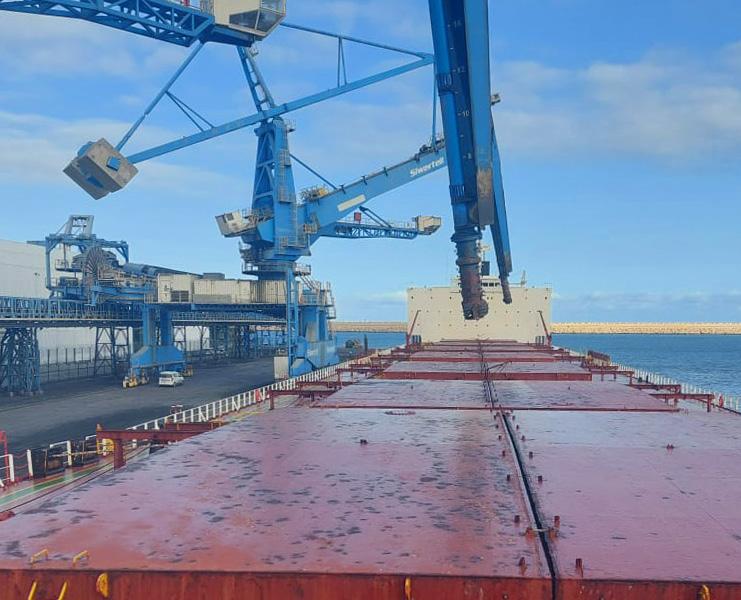
Our operations concentrate predominantly on the trading of steam coal, petroleum coke, coking coal and met coke, with major investment made in the latter two.
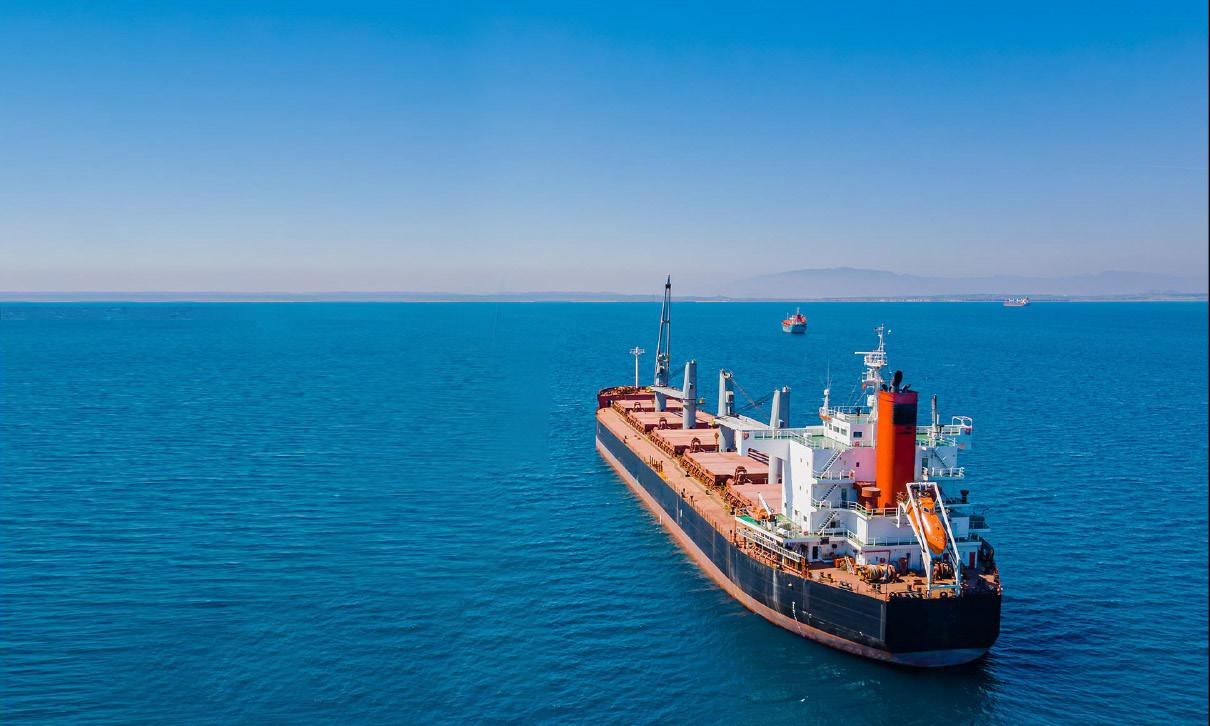
With over 30 years of experience, Bulk Trading SA has established itself as a trusted name in the global energy commodities market. Founded in 1994 and headquartered in Switzerland, the company specialises in the trading and transportation of solid fuels, offering dependable supply chain solutions to customers across the world.
Bulk Trading’s core expertise lies in the trading of steam coal, coking coal, metallurgical coke, and petroleum coke—products essential to the global energy and industrial sectors. Over the years, the company has expanded its portfolio to include emerging commodities such as biomass, clinker, cementitious materials, and granulated blast furnace slag (GBFS), supporting the evolving needs of its customers.
With offices and partners spanning Europe, Asia, and the Americas, Bulk Trading combines its global reach with a localised approach to service. Its in-house shipping division provides tailored logistics and maritime solutions—not only for its own trading operations but also to third-party clients requiring reliable vessel access for products such as cement and wheat.
Built on a foundation of long-term relationships and consistent performance, Bulk Trading continues to support customers in navigating complex commodity markets with confidence. The company’s commitment to reliability, flexibility, and market insight makes it a go-to partner in the energy space.
To learn more, visit www.bulktrading.ch or reach directly at info@bulktrading.ch.

How is TAQA Morocco leveraging digital technology to enhance supply chain operations, and what recent advancements have had the most significant impact on efficiency and transparency?
TAQA Morocco has embarked on a company wide digitalisation initiative that spans every department and process. In the energy supply chain, we have fully digitalised our inbound logistics, moving from paper intensive processes to digital tools that allow us to track shipments in real time and maintain clear visibility of our inventory status. This digital transformation has enabled us to improve logistics costs and make more informed decisions regarding incoming shipments, ultimately saving money on demurrage, or vessel wait times. TAQA Morocco has been one of the first movers in digitalising inbound supply chain operations in Africa, and we are very proud of that achievement.
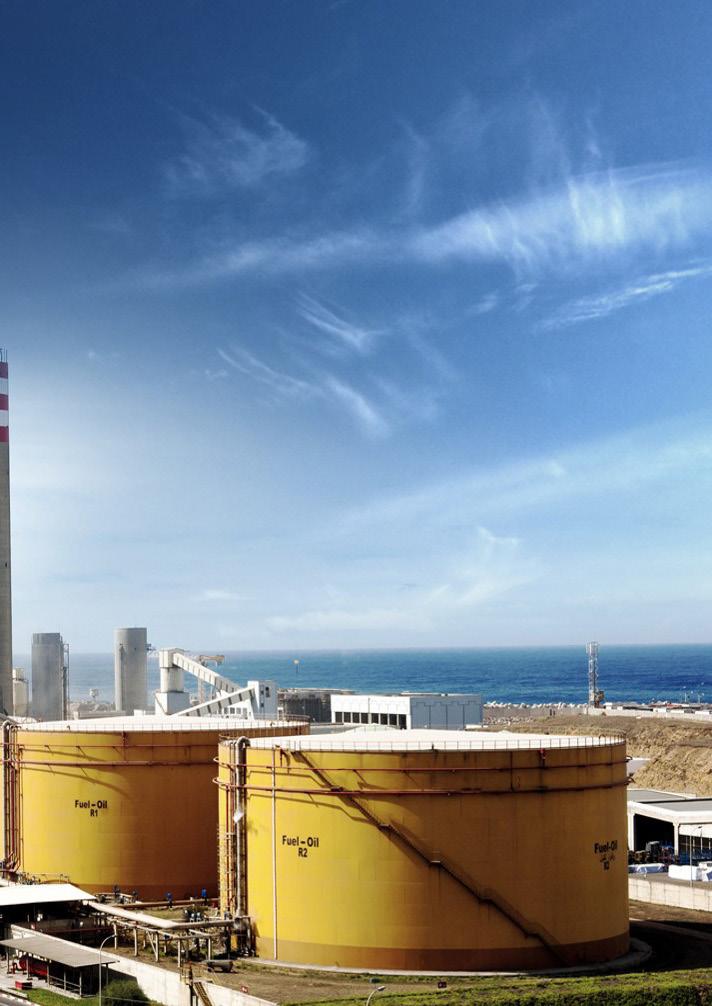
With the complexities of global supply chains, how does TAQA Morocco manage risks to ensure continuity and resilience in its procurement and contracts operations?
Our supply chain, like that of many industrial peers, has faced numerous challenges and pressures stemming from events such as the COVID 19 pandemic, geopolitical tensions in the Middle East, and natural disasters like floods and earthquakes. While these events are often beyond our control in terms of cause and effect, we’ve developed procedures that help us maintain resilience in the face of adversity. We ensure our geographic sourcing footprint is as broad as possible, for example by entering into multi origin commodity contracts. We also maintain a robust inventory to buffer against sudden supply disruptions and have agreements in place with partners for alternative sourcing, whether through different ports or storage locations. In addition, we regularly track, review, and address risks in a structured and systematic manner, working closely with our Risk Management team at TAQA Morocco to ensure ongoing supply chain resilience.
What unique challenges do you face in procurement for the energy industry, and how does TAQA Morocco address these to maintain a competitive edge?
The energy industry is evolving rapidly, especially with the strong push toward renewable energy. Technological advancements and changes in equipment require us to be adaptable and proactive to maintain our competitive edge. While many of the challenges we face are similar to those in other industries, such as supply chain disruptions, cost pressures, and regulatory demands, overcoming them requires an agile and flexible approach. We must be able to respond to changes in the landscape quickly and effectively. To achieve this, it’s essential to have the right data and tools in place to capture value wherever possible. This is why digitalisation plays such a critical role in our strategy. It enables better decision making, improves efficiency, and supports continuous improvement in procurement performance.
What trends do you see shaping the future of procurement and supply chain management in the energy sector, and how is TAQA Morocco preparing to adapt to these changes?
Digitalisation is a major trend, and TAQA Morocco is fully committed to this transformation. In our energy supply chain, we have already digitalised all core processes, including tendering, procure to pay, and overall supply chain management.
We also believe that artificial intelligence will have a significant impact on procurement. We are actively exploring how AI can support more informed, data driven decision making. AI tools will help us analyse our supply chain, identify inefficiencies, and propose alternatives and solutions to resolve bottlenecks. In addition, AI will enable greater automation by handling repetitive, manual tasks, allowing our teams to focus on higher value activities and improving overall efficiency across procurement operations.

TAQA Morocco is a significant player in the country’s energy sector. How does your procurement strategy support the broader economic development goals of Morocco?
TAQA Morocco’s energy procurement strategy is fully aligned with the broader economic development goals of the country. Our aim is to produce electricity at the lowest possible cost, while maintaining the highest levels of quality, reliability, and sustainability.
By providing reliable and competitively priced energy, we help enable Morocco’s continued economic growth and industrial development. Energy is a foundational driver of progress, and our role in supporting that through strategic procurement is something we take great pride in.
TAQA Morocco’s energy procurement strategy is fully aligned with the broader economic development goals of the country.
As a leader in procurement and contracts, what advice would you give to those looking to advance their careers in this field, especially within the energy industry?
My advice is simple: get involved, learn the trade, be open to new technologies, build strong relationships, and always aim to add value to those around you and to your organisation.
The energy industry is a fantastic place to build a career. There will be many opportunities in this sector, and young professionals are very much needed. While energy specific procurement does have its unique aspects, it is not fundamentally different from procurement in other industries. Those specificities can be learned by anyone willing to put in the time and effort.
TAQA Morocco, part of the TAQA Group, is a leading power and water utility company in Morocco. Through its subsidiaries MASEN and AMEPA, TAQA engages in renewable energy development, water desalination, and regional power distribution. Committed to sustainability and innovation, the company supports Morocco’s transition to clean energy and reliable infrastructure.
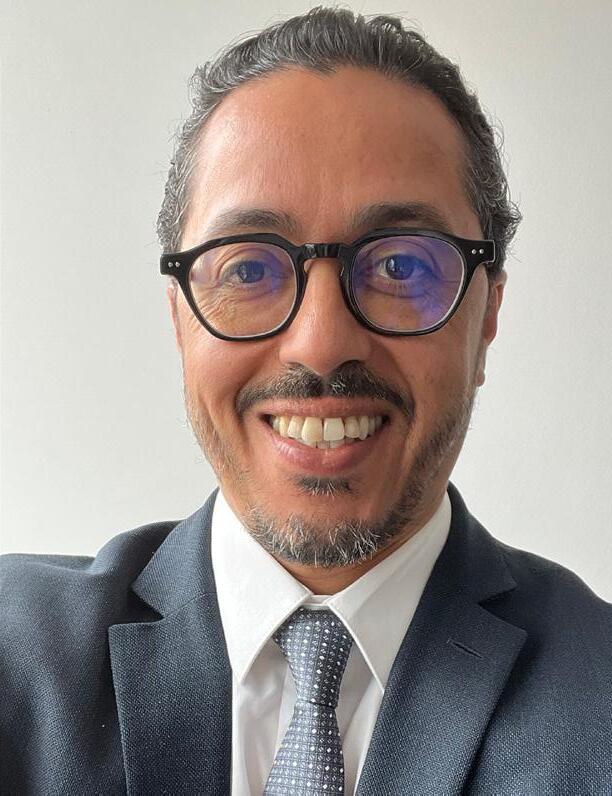
Mohamed Berrechid Procurement & Contracts Director